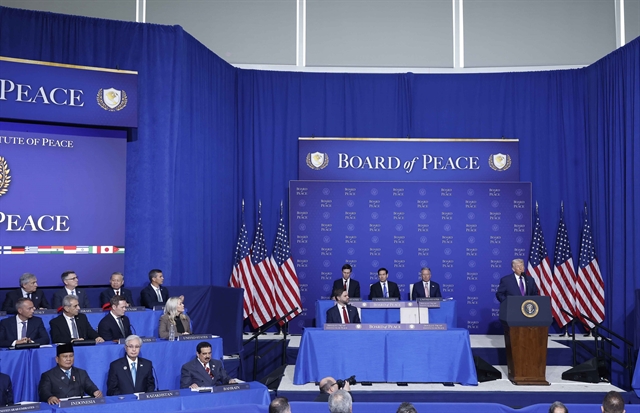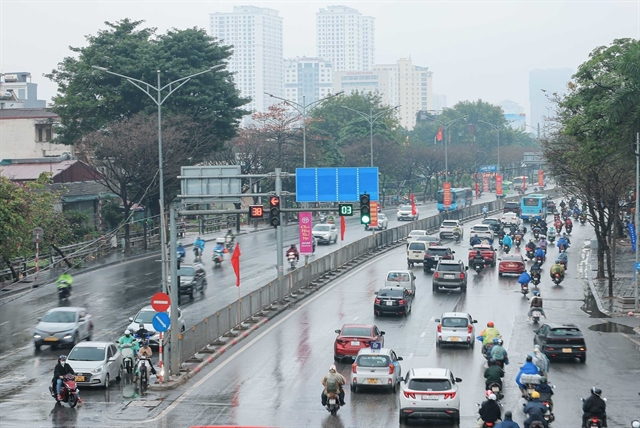 Politics & Law
Politics & Law


|
| Photo shows Việt Nam Electricity (EVN)'s headquarters in Hà Nội. — Photo chinhphu.vn |
HÀ NỘI — The Commission for Management of State Capital at Enterprises has proposed reprimands for six officials of Việt Nam Electricity (EVN).
The officials include Dương Quang Thành, former chairman of EVN’s Board of Directors; Trần Đình Nhân, member of EVN’s Board of Directors and General Director of EVN; Ngô Sơn Hải, Deputy General Director of EVN; and three officials from EVN's National Load Dispatch Centre.
This move followed the Ministry of Industry and Trade issuing a conclusion on the implementation of regulations on the management and administration of electricity supply by EVN and relevant agencies.
Between May and the first half of June, a widespread disruption of electricity supply reportedly took place, especially in the northern region, causing public concern. This not only affected people's lives but also caused damage to the economy.
Consequently, the Prime Minister ordered the strict handling of relevant organisations and individuals. As a result, 85 of EVN’s relevant organisations and 161 relevant individuals were instructed to conduct self-performance reviews.
Currently, the review process is largely complete. The commission has collaborated with the Party Organisation of the Central Business Bloc to instruct EVN to discipline the relevant officials and party members.
Previously, on 12 July, the ministry released its conclusion after a month-long inspection of EVN and associated units regarding the implementation of regulations on the management and operation of electricity supply.
The conclusion highlighted deficiencies and violations in the direction and management of electricity supply from 2021-23 by EVN and relevant units.
In particular, EVN’s investment in and completion of power sources and grids lagged; troubleshooting for generator sets at certain thermal power plants was also tardy, diminishing electricity supply capability.
Furthermore, EVN and its associated units did not adhere strictly to Directive No. 29/CT-TTg of the Prime Minister, or the decisions, directives, and guidelines of the Minister of Industry and Trade on power supply plans and fuel supply charts for power production. This laxity rendered the preparation of power sources ineffective, diminishing energy security provisions. The coordination and functioning of the power system were often imbalanced, resulting in varied power source use.
Large-scale disruptions to the power supply, particularly in the northern region between May and early June, including unexpected power outages without prior warning, led to public indignation, affecting people's lives, industrial activities, and the investment environment. — VNS




